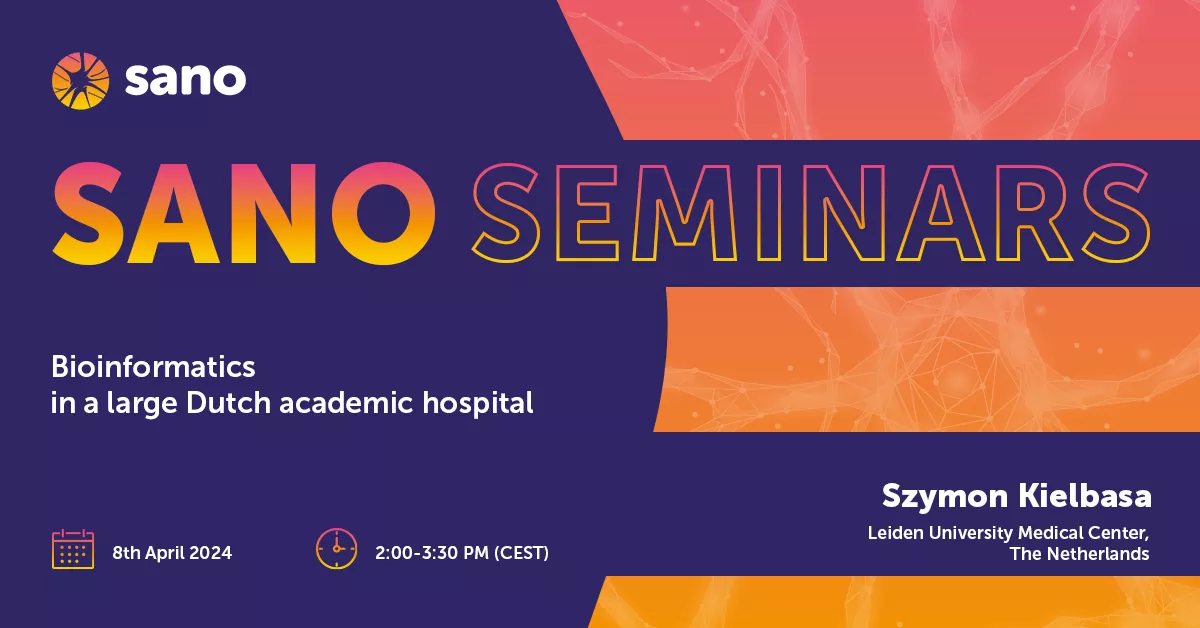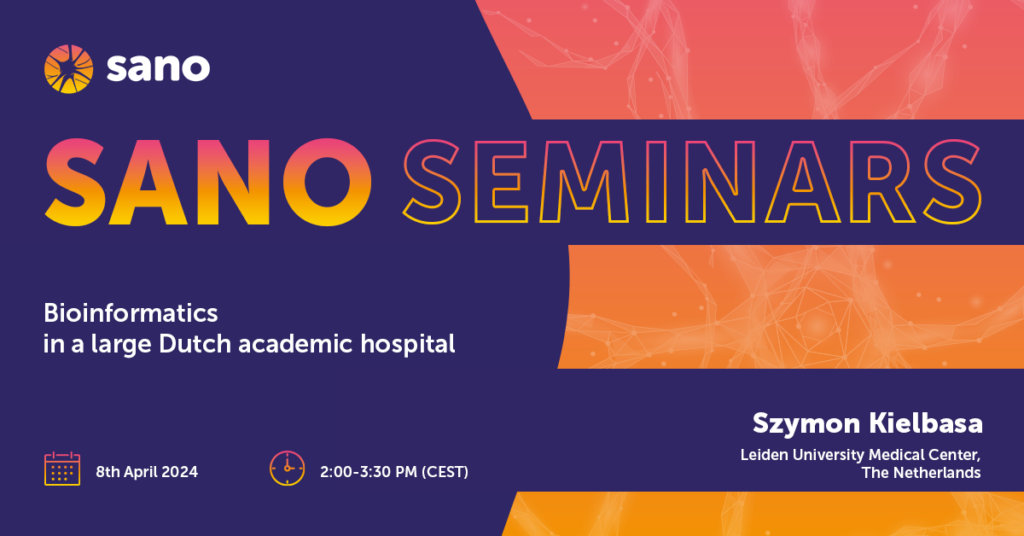
128. Bioinformatics in a large Dutch academic hospital
Szymon Kielbasa – Leiden University Medical Center, The Netherlands
Abstract
Bioinformatics plays a crucial role in modern healthcare, as it enables the analysis of large and complex datasets generated by high-throughput technologies from samples collected from human subjects (patients or controls).
In a hospital setting, bioinformatics is used to analyze genomic, transcriptomic, proteomic, metabolomic, or imaging data to gain insights into disease mechanisms, identify biomarkers, and develop personalized treatment strategies.
Bioinformaticians in hospitals work closely with clinicians and researchers to analyze and interpret data, and to translate research findings into clinical practice.
During the talk, I will present the role and organization of bioinformatics in a large Dutch academic hospital, the Leiden University Medical Center (LUMC), and discuss the challenges and opportunities of working in a hospital setting.
About the author
Szymon M. Kiełbasa is a researcher/lecturer at the Department of Biomedical Data Sciences of the Leiden University Medical Center (LUMC), Leiden, the Netherlands.
For more than 20 years he has been working as a bioinformatician.
He has a PhD in bioinformatics from the Humbolt University, Berlin and a MSc in physics from the Jagielonian University, Krakow.
His research interests include computational biology, genomics, transcriptomics, and machine learning. He has experience in the analysis and integration of high-throughput sequencing data, including bulk and single cell RNA-seq, ChIP-seq, exome-seq or whole-genome sequencing.
He is also interested in the development of bioinformatics tools and pipelines for the analysis of large-scale genomic data.
He is currently working on projects related to the analysis of single-cell RNA-seq data and the integration of multi-omics data for the study of complex human diseases.


